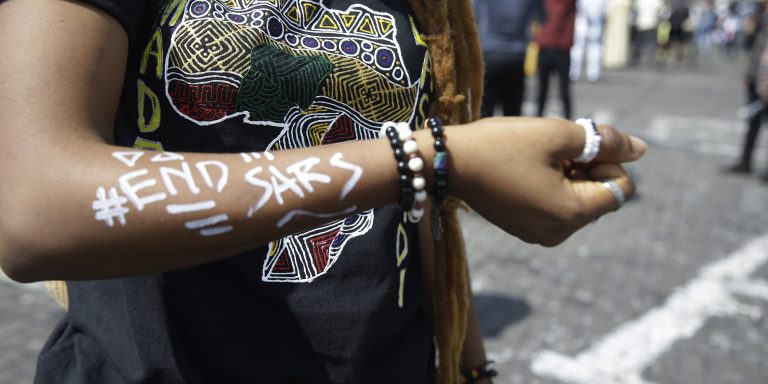INTELBRIEF
October 23, 2020
IntelBrief: Protesters Worldwide Defy COVID Restrictions to Demand Government Reform

Bottom Line Up Front
- From Thailand to Kyrgyzstan and Pakistan to Nigeria, citizens are demonstrating against a range of issues, including corruption, police brutality, and vote rigging.
- Large scale protests against the military-linked government and monarchy have destabilized Thailand’s capital Bangkok over the past week.
- In Nigeria, citizens have been protesting against the Special Anti-Robbery Squad, known for its brutality, including torture and extra-judicial killings.
- The COVID-19 pandemic has given citizens an opportunity to reflect on a litany of grievances and to mobilize against government injustices.
From Thailand to Kyrgyzstan and Pakistan to Nigeria, citizens are demonstrating to highlight a range of grievances, including corruption, police brutality, and vote rigging. For six months from March to September, protests and demonstrations occurred in various cities across the world, but were perhaps muted due to lockdowns and other restrictions related to the COVID-19 pandemic. But in recent weeks, citizens in a number of countries around the world have taken to the streets to demand government reform. Many of these movements have been elevated by social media, enabling rapid amplification of protest messages and more networked lines of support, including sharing protest guides and tactics. At the same time, several governments continue to use the COVID-19 pandemic as justification to repress the civil liberties of protesters, including outlawing dissent and public gatherings.
Large scale protests against the military-linked government and monarchy in Thailand have destabilized Bangkok, the country’s capital, over the past week. Younger protesters have taken to the streets to demand reforms and have learned and applied lessons from other protests worldwide. Using encrypted apps like Telegram to communicate and organize, Thais have been downloading ‘protest guides’ from Hong Kong that have been placed online. These guides have been translated into Thai and offer tactics on avoiding surveillance from authorities and protecting oneself from tear gas and other riot control measures employed by the security services. Thai demonstrators have demanded reforms to the country’s constitution, to account for greater democratic freedoms, as well as the resignation of Prime Minister Prayuth Chan-ocha, the Thai Army general who led a 2014 coup and emerged victorious in disputed elections last year.
In Nigeria, citizens have been protesting against an infamous Nigerian police unit known as the Special Anti-Robbery Squad, or SARS, known for egregious brutality, including torture and extra-judicial killings. Tens of thousands of Nigerians have turned out to demonstrate. The protests have gained in popularity and even spawned a viral hashtag #EndSARS, which has been spread by Nigerians at home and in the broader Nigerian diaspora, including by prominent figures and influencers supporting the movement. Earlier in the week, a peaceful demonstration in Lagos, Nigeria’s capital, was interrupted by gunfire, as Nigerian soldiers opened fire on the crowd, killing a dozen protesters. Even after Nigerian President Muhammad Buhari agreed to concede to some of the protesters’ demands, the demonstrations have continued, with Nigerians calling for police reform and an end to government corruption. As in Thailand, young people are at the forefront of this movement, and half of Nigeria’s 206 million people are under the age of 19.
In Pakistan, protesters have been organizing for weeks against the government of Prime Minister Imran Khan. Tens of thousands of Pakistanis turned out in the city of Karachi to voice growing displeasure with worsening economic conditions and endemic corruption. Opposition politician Muhammad Safdar was jailed for his role in the protests but has since been released. Some protesters have highlighted the influential role of high-ranking Pakistani military officers—both current and retired—in Pakistan’s government, including in lucrative projects linked to China’s Belt and Road Initiative. In Kyrgyzstan, several weeks of protests beginning in early October led to the resignation of Kyrgyz President Sooronbai Jeenbekov. Protesters in the Kyrgyz capital of Bishkek were outraged over a disputed parliamentary election. The COVID-19 pandemic and resulting quarantine periods have given citizens an opportunity not just to reflect on a litany of grievances, but also to mobilize and organize against government injustices. The recent wave of protests reflects growing anger and discontent at the status quo in many countries, as disparities between socio-economic strata of countries are exacerbated, and governments are unable to meet the basic needs of their citizens.